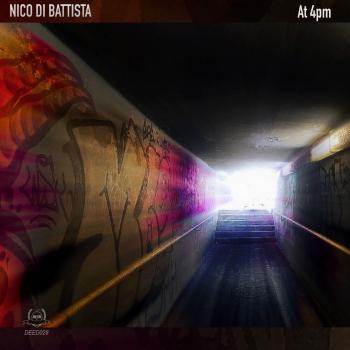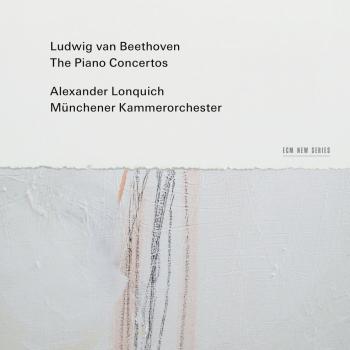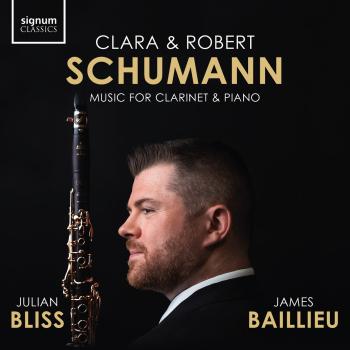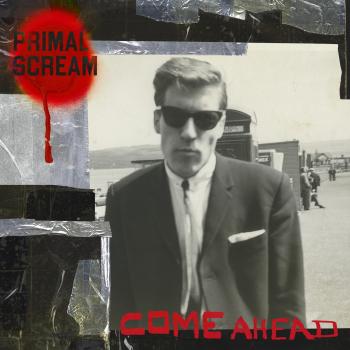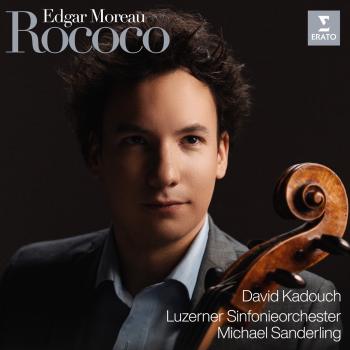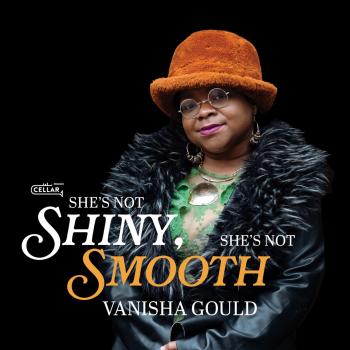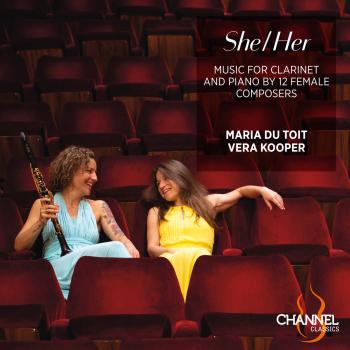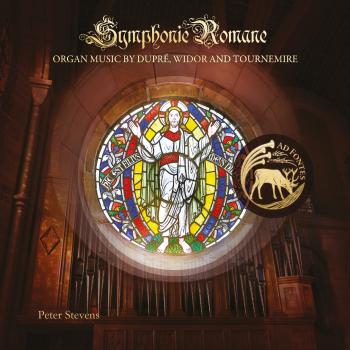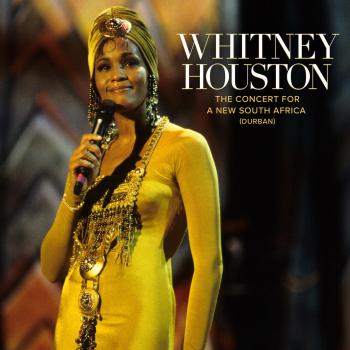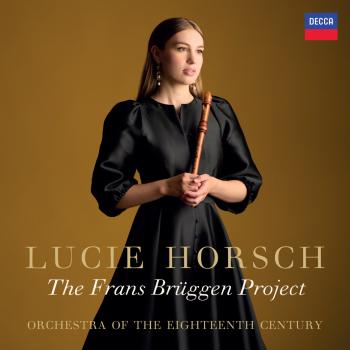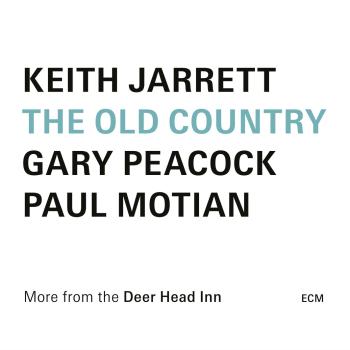
Wistawa Tomasz Stanko New York Quartet
Album info
Album-Release:
2013
HRA-Release:
08.02.2013
Label: ECM
Genre: Jazz
Subgenre: Modern Jazz
Artist: Tomasz Stanko New York Quartet
Composer: Wislawa Symborska, Tomasz Stanko
Album including Album cover Booklet (PDF)
I`m sorry!
Dear HIGHRESAUDIO Visitor,
due to territorial constraints and also different releases dates in each country you currently can`t purchase this album. We are updating our release dates twice a week. So, please feel free to check from time-to-time, if the album is available for your country.
We suggest, that you bookmark the album and use our Short List function.
Thank you for your understanding and patience.
Yours sincerely, HIGHRESAUDIO
- 1 Wistawa 10:23
- 2 Assassins 07:49
- 3 Metafizyka 07:41
- 4 Dernier Cri 10:18
- 5 Mikrokosmos 08:23
- 6 Song for H 04:38
- 7 Oni 06:34
- 8 April Story 07:10
- 9 Tutaj - Here 08:33
- 10 Faces 08:07
- 11 A Shaggy Vandal 07:35
- 12 Wistawa, Var. 13:12
Info for Wistawa
Wie sein frühes Vorbild Miles Davis hat auch der polnische Trompeter Tomasz Stanko eine Begabung dafür, spezielle Bands zu formieren - und sein neues New York Quartet ist besonders vielversprechend. Das Rhythmusgespann aus Bassist Thomas Morgan und Schlagzeuger Gerald Cleaver ist eines der einfühlsamsten in der heutigen improvisierten Musik. Der auf Kuba geborene Pianist David Virelles (den man auch auf Saxophonist Chris Potters parallel erscheinenden, ersten ECM-Album “The Sirens” erleben kann) besitzt feine Antennen für das dunkle Brüten in Stankos freien Balladen und reflektiert in seinem Spiel, so Stanko, auch die “afrikanischen Wurzeln des Jazz und südamerikanische Melancholie”. Doch inspiriert ist dieses Doppelalbum voll neuer Stanko-Kompositionen vor allem von den Gedichten der 2012 verstorbenen polnischen Literatur-Nobelpreisträgerin Wislawa Symborska.
Seit fünf Jahren besitzt Tomasz Stanko ein Apartment in New York und pendelt seitdem zwischen seinem polnischen Wohnort Warschau und dem Big Apple hin und her. “Ursprünglich wollte ich einfach nur die Stadt genießen, in der Jazz seit jeher von so enormer Bedeutung ist”, verrät Stanko. “New York ist nach wie vor die wichtigste Jazzstadt der Welt. Es ist die Stadt, in der Charlie Parker, Miles Davis und Duke Ellington großartige Musik machten und in der ein Großteil der Jazzgeschichte geschrieben wurde...” Aber es dauert nicht lange, bis der Pole in die lokale Szene eintauchte und auf die Musiker stieß, die nun sein neues Quartett bilden.
Auf dem Debütalbum stellt Stanko mit seinem New York Quartet neue Kompositionen vor, zu denen ihn Werke der Lyrikerin Wislawa Symborska inspirierten. “Die Lektüre von Wislawa Symborskas Worten vermittelte mir viele Ideen und Einsichten”, merkt der Trompeter im Booklet des Albums an. “Sie zu treffen und mich mit ihrer Poesie zu beschäftigen, gab mir den Anstoß zu dieser Musik, die ich nun respektvoll ihrem Andenken widmen möchte.” 2009 hatte die bereits hochbetagte Symborska in der Krakauer Oper aus ihren Werken gelesen, und Tomasz Stanko begleitete ihren Vortrag mit Improvisationen auf seiner Trompete. Einige der damals vorgetragenen Gedichte, vor allem aus Symborskas letztem Gedichtband “Tutaj - Hier”, haben Stankos Musik deutlich beeinflusst, bis hin zur Titelgebung der Stücke “Assassins”, “Mikrokosmos” und “Metafizyka”. “Faces” und “A Shaggy Vandal” basieren auf Symborskas Poem “Thoughts that visit me on busy streets”, einer ironischen Meditation über alte und neue Formen.
“Alte und neue Formen” könnte auch der Untertitel dieses Doppelalbums lauten. Das beseelte, freie Balladenspiel im Titelstück, das in zwei unterschiedlichen Versionen zum Auftakt und Abschluss des Albums geboten wird, hätte auch ebenso gut auf Stankos 1976 erschienenes ECM-Debütalbum “Balladyna” gepasst. In “Assassins” widerum überrascht einen der Trompeter, indem er eine luftig-boppige Melodie plötzlich in ein freies, kontrapunktisches Spiel mit enormem Drive, sehr vielen Details und strömender Energie münden lässt. Absolut meisterhaft gelingt Tomasz Stanko hier der Spagat zwischen Alt und Neu, zwischen Tradition und Innovation, zwischen Komposition und Improvisation.
Tomasz Stanko, trumpet
David Virelles, piano
Thomas Morgan, bass
Gerald Cleaver, drums
Recorded June 2012, Avatar Studios, New York
Engineer: James A. Farber
Assistant: Charlie Kramsky
Produced by Manfred Eicher
When Tomasz Stanko won the European Jazz Prize in 2002, the jury declared: “Stanko has developed a unique sound and personal music that is instantly recognizable and unmistakably his own... A world-class player, a stylist, a charismatic performer and original composer.” In the 1990s, public recognition grew as a result of ECM recordings such as “Litania”, his tribute to Komeda, and “From the Green Hill” – which won the German Critics Prize as “Album Of The Year” in 2000. After a decade of working almost exclusively with his Polish quartet – as on the “Soul of Things”/”Suspended Night”/”Lontano” trilogy, Stanko began once again fielding new projects. In 2010 he introduced a young ‘Nordic’ band on “Dark Eyes” Now comes “Wisława” with his New York Quartet, a most exciting proposition.
All three of his new associates inspire Tomasz Stanko to some of his most exciting playing. “It’s good to see an elder artist chase after a new idea.” wrote the New York Times’s Ben Ratliff of the group’s early performances. “Until quite recently, Tomasz Stanko made beautiful dirges, rubato soul-ache ballads with rumblings of free jazz. They came out on a string of fine records for the ECM label over a dozen years or so, and he changed bands several times during that period. But the work had an overall unity of mood and purpose... Both as a soloist and as a bandleader, he can pull off the dark emotions in his music. His trumpet tone is steady and stark, crumbled around the edges, and he makes his strong, short themes anchor the arrangements... Without radically changing the character of his music – he still loves ballads, still foregrounds a lonely melody – Mr Stanko is allowing its balances to shift.
[The] music was hard to define, in an excellent way. It used steady rhythms and vamps as well as free improvisation; it was both a collection of solos and a sequence of careful chapters (...). Some extraordinary passages unfolded without any of the musicians making them seem formal, almost as if natural forces were moving the musicians’ hands.”
David Virelles
(born 1983 in Santiago de Cuba) is one of the most strikingly original pianists to have emerged on the US jazz scene in recent years, his playing informed early on by study of Monk and Andrew Hill alongside classical music, contemporary composition and Cuban and Haitian ritual music. Quote: “With anything that I’m a part of I’m trying to get to the same feeling that I get when I listen to McCoy Tyner or [Afro-Cuban singer] Lázaro Ros or Bartók – there is a certain timeless quality to all of that.” “Wisława” is Virelles’s second ECM appearance in as many months and follows his contribution to Chris Potter’s “The Sirens.” Stanko says of Virelles that he “draws on African roots of the music, and there’s a drop of South American melancholy in his playing which also feels very familiar to me.”
Thomas Morgan
(born 1981 in Hayward, California) and drummer Gerald Cleaver (born 1963 in Detroit) have a number of ECM recording credits. Morgan has been heard with John Abercrombie and with Masabumi Kikuchi, Cleaver on dates with Roscoe Mitchell, Miroslav Vitous and Michael Formanek. Together they comprise two-thirds of the Craig Taborn Trio (and have latterly recorded with Craig for ECM, the album being due for release in Spring 2013). Morgan and Cleaver comprise one of the great bass and drum teams of new jazz history, generating a seemingly effortless sense of musical support, liberty and independence, shoring up the soloists yet free at any second to offer their own perspectives as the work unfolds: “An absolutely unique bassist, and an incredible drummer”, in Stanko’s assessment.
Booklet for Wistawa

